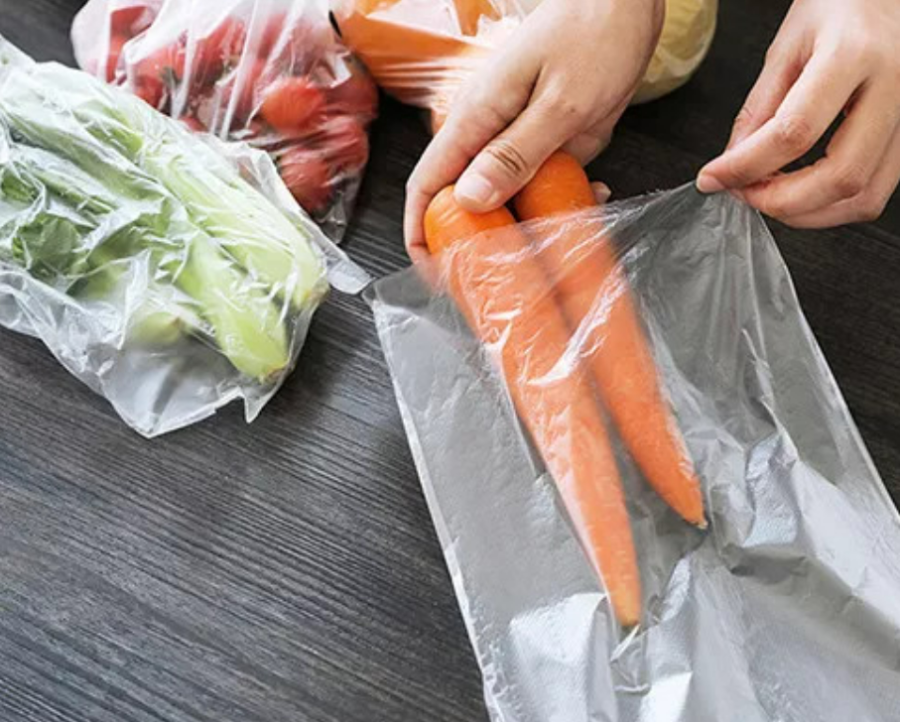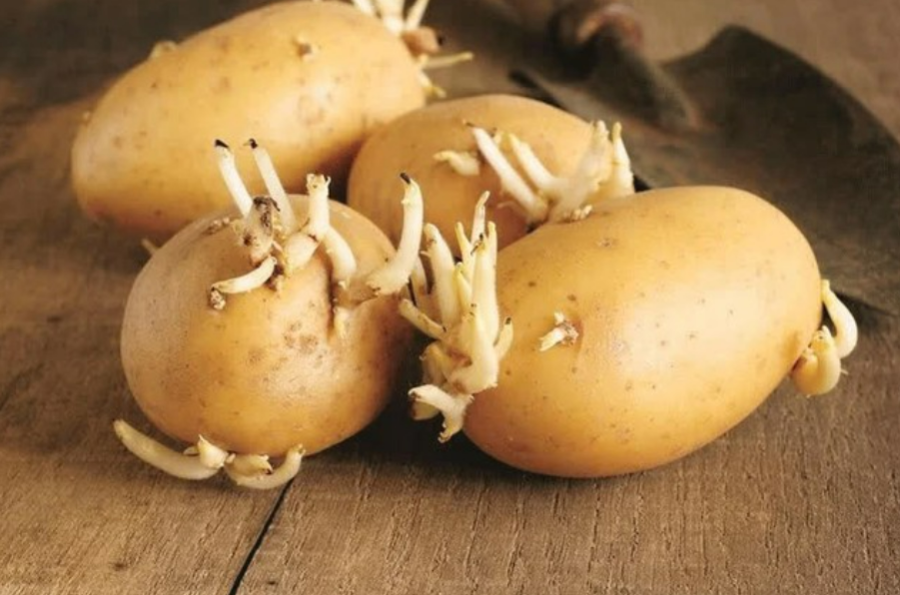## Rotten Ginger, Sprouted Ginger: A Health Hazard
Rotten Ginger: A Liver Toxin
Rotten ginger can harm your liver due to the presence of safrole, a potent toxin that can cause liver cell necrosis. When ginger rots, the safrole toxin spreads throughout the ginger root, making it appear wholesome when, in fact, it’s contaminated. Therefore, rotten ginger should be discarded.
Sprouted Ginger: Nutritional Deficit
Similarly, sprouted ginger has reduced nutritional value and should be avoided.
Pre-cut Vegetables: A Quality Concern
You may have seen pre-cut vegetables in supermarkets, neatly packaged and convenient, but beware! Often, these pre-cut veggies are of inferior quality, partially rotten, or moldy. To avoid waste, employees trim the damaged parts, transforming them into seemingly fresh and appealing packages.

However, there’s no guarantee that these subpar vegetables are free from bacterial or mold contamination, posing potential health risks.
Wilting and Moldy Vegetables: A Health Risk
Occasionally, you may come across vendors at the market offering wilted vegetables at extremely low prices. While this may seem like a bargain, these vegetables are likely past their prime, both in terms of taste and nutritional value. Furthermore, they may be laden with bacterial and mold toxins, particularly aflatoxin, which is produced by the Aspergillus mold species.
Aflatoxin can cause acute poisoning and direct liver cell damage, leading to degeneration, necrosis, and even liver cancer. In contrast, consuming fresh and safe vegetables can help reduce aflatoxin absorption thanks to the presence of chlorophyll. Therefore, it’s best to decline these wilted and moldy offerings.
Aging Pumpkin: A Sweet Danger
Pumpkin is not just delicious but also packed with nutritional benefits. However, aging pumpkins can become a health hazard due to their high sugar content. Over time, the sugar ferments, leading to spoilage.
Consuming spoiled pumpkin can result in food poisoning, manifested by dizziness, drowsiness, general weakness, vomiting, and diarrhea. If the pumpkin emits a fermented odor, akin to alcohol, it’s best to discard it.
Fresh Wood Ear: A Skin Sensitivity Concern
Fresh wood ear mushrooms contain a light-sensitive substance called Porphyrin. Ingesting large amounts of this substance can lead to skin inflammation and symptoms such as itching, edema, and pain when exposed to sunlight.
Fortunately, most Porphyrin is degraded during the drying process. Therefore, it’s recommended to use dried wood ear mushrooms, which are soaked and cooked before consumption. Soaking dried wood ear mushrooms helps dissolve any remaining Porphyrin.
When soaking dried wood ear, remember to change the water multiple times, and ideally, limit soaking to no more than two hours to prevent bacterial growth.
Sprouted Potatoes: A Solanine Scare
Sprouted potatoes are a common vegetable that harbors a deadly toxin. Solanine, found in significant quantities in sprouted potatoes, can cause fatal poisoning with a dose of 0.2-0.4 grams per kilogram of body weight.

Resisting the urge to trim the sprouts and continue using the potatoes is essential, as the toxin may still be present in the remaining parts, potentially leading to mild poisoning, resembling a bout of flu.
How to Safely Store Canned Fruits for Extended Freshness
Canned fruits are a convenient and versatile product, perfect for quick and tasty drinks or as a snack on the go. However, they can spoil easily if not stored properly. It is important to know the correct way to store canned fruits to maintain their freshness and quality. This knowledge will ensure that you can enjoy your canned fruits for longer and make the most of this convenient product.
Fresh Fish vs Frozen Fish: Which is Better?
The Great Frozen vs. Fresh Food Debate: Which Tastes Better and Is More Nutritious?
There’s a common perception that frozen foods, particularly frozen fish, are inferior in terms of taste and nutritional value when compared to their fresh counterparts. But is this belief really true, or are we doing a disservice to the convenience and longevity of frozen foods? Let’s explore whether frozen fish can stack up against fresh fish in terms of flavor and nutritional benefits.





































